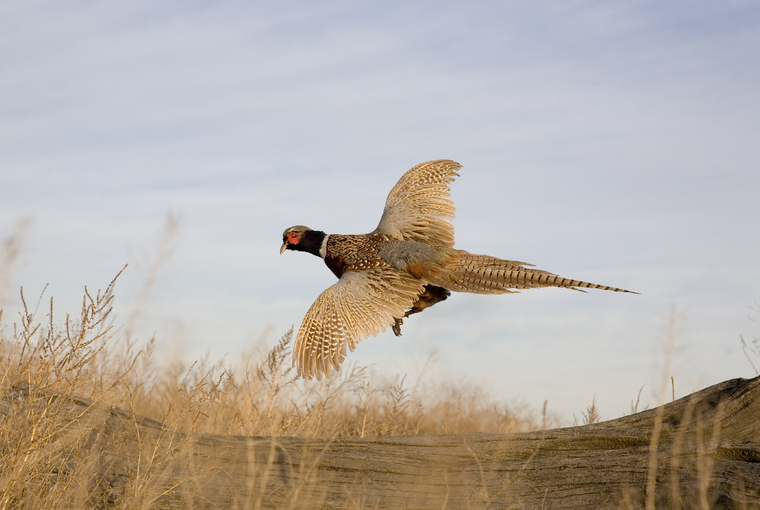
Hunters want the Grand River Conservation Authority to revisit its decision to cancel the pheasant hunt program at Conestogo Lake Conservation Area.
Ontario Federation of Anglers and Hunters (OFAH) provincial director-at-large Tony Jackson was part of a delegation to the authority’s board meeting on Jan. 28, along with hunter Mario Coniglio and Jim Baker of the Grand River chapter of the North American Versatile Hunting Dog Association.
Coniglio, lead speaker in the presentation, proposed the authority re-establish a hunting liaison committee to develop a sustainable program. He also provided background on the cancelled hunt, including that licences cost $280, and how hunters must be OFAH members for liability insurance.
Transparency sought
“We’re looking for some transparency on how the decision was made in the first place to cancel the hunt,” Jackson said in an interview after the meeting. “Hopefully this committee will get re-established.”
The hunt, which started in the 1970s, was cancelled last year by the authority. Staff blamed provincial changes to non-core functions of conservation authorities.
“The reason for the cancellation remains vague,” Coniglio said, adding the process was not transparent.
Since there is a maximum hunter number, Coniglio used an estimate of the 2020 net revenue of $18,840, saying the program was still profitable for the authority after the cost of the birds was taken into account.
“It remains questionable how one hunting program can be singled out as not in line with priorities, but other hunting opportunities are,” he said.
Coniglio said the pheasant program is a put and take program, but said it was no different than the “highly-acclaimed” put and take brown trout fishery in the Grand River.
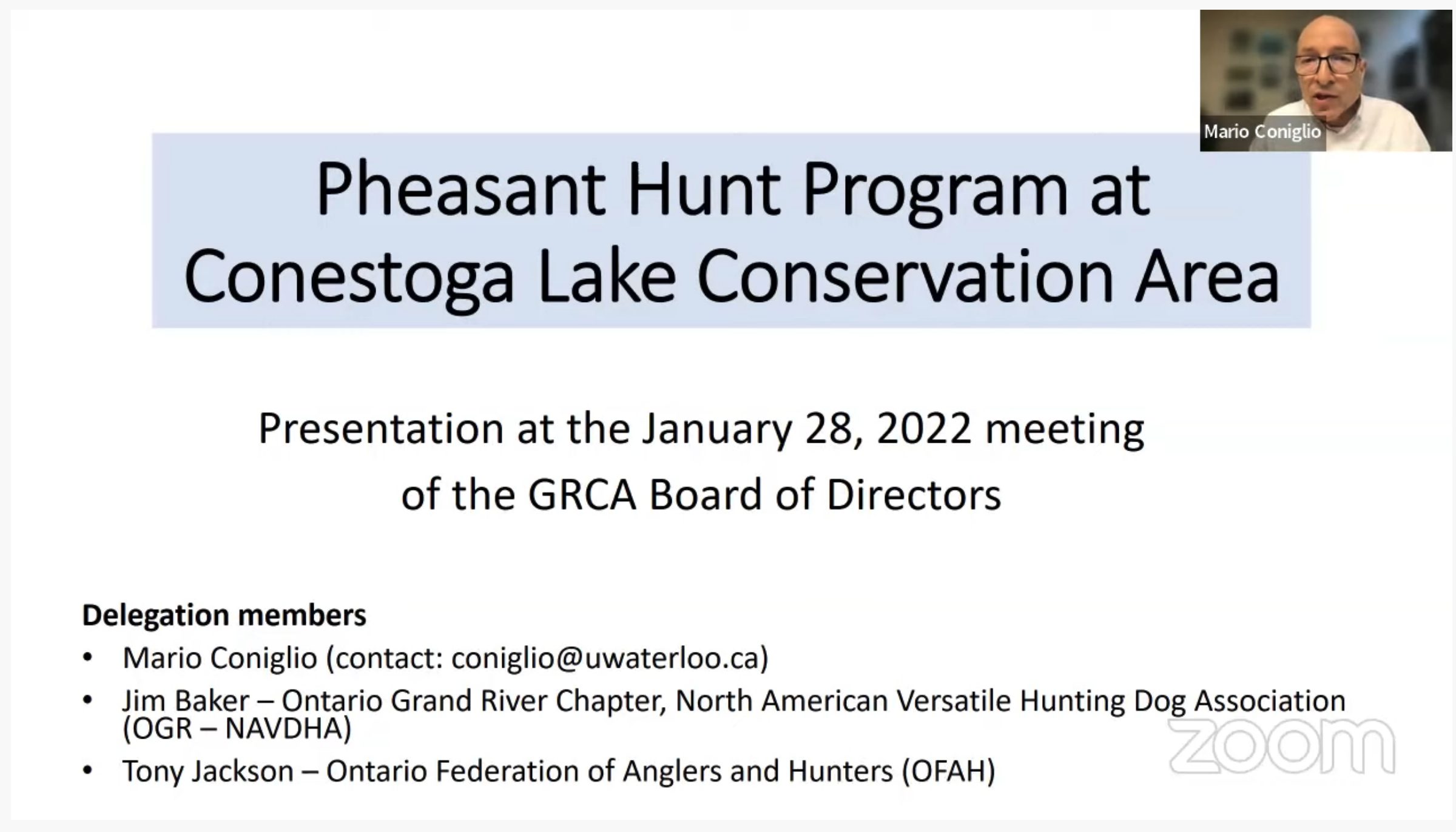
Click here to view the meeting.
Stepping forward
Jackson, who is a provincial director at large with OFAH and also a director with Upper Thames Region Conservation Authority, gave background on such a committee, saying getting the committee going again would be a good step forward.
“I certainly hope the board sees the benefit of this partnership and that it would be mutually beneficial,” he said.
The authority board directed staff to come back with a report around the decision, why it was made and to suggest next steps.
Interviewed after the meeting, Jackson said the hunters want to work together to continue the hunt. He said creation of a “Friends of” committee may be the ultimate outcome.


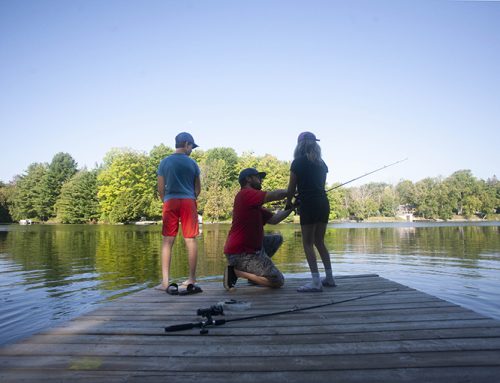
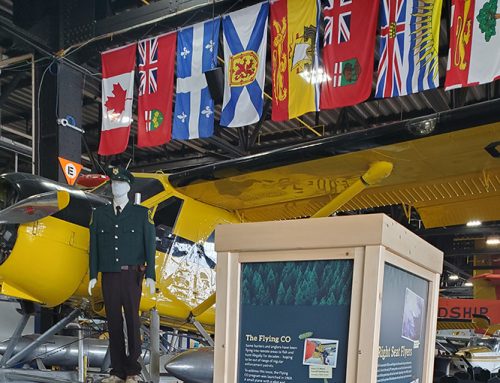
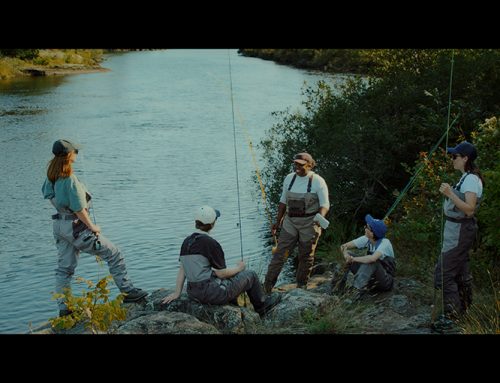
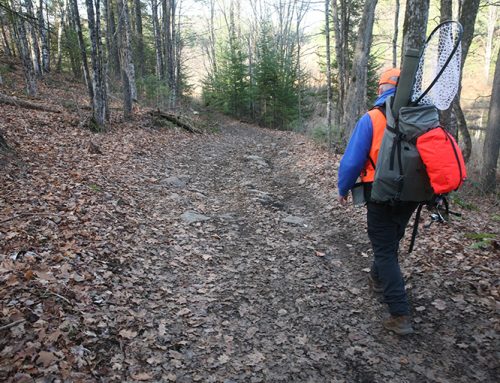
Would like to known how we can help and support in any aspect a long life tradition and obviously with a great support in conservation as well . After all as they messaged it is a give and take effort so the more we are involved the better it will be .
Shout out to OFAH and NAVDHA for stepping up to fight for this hunt. Hopefully this can be salvaged. We already lost Luther and nearly lost Norfolk County. Let’s hope Conestoga doesn’t go the same way or pheasant hunting in Ontario will become a rich man’s pursuit at exclusive clubs.
I am a hunter myself and have seen the deplexing of grouse and rabbit at all the grc conservation authorities woodlands. I myself think it should close all hunting in these areas for at least five years so the game can get a chance too bounce back.
I would like to see this pheasant hunt reinstated. The reasons given for cancellation of the hunt are vague. Every year this hunt sold out and as far as I knew made money for the Conservation Authority. To answer to Kevin B. comments above, the hands off approach does’nt work and leads to culls and government hunts by paid personnel later, as has happened in other parks and wildlife areas.
I highly doubt that after five years there would be any reinstating of cancelled hunt as seen in other areas around the province.
I’m curious to know if there are any updates to this issue. I think in the meeting they said it would be updated at the next GRCA meeting in March, which is passed. I would like to see it return as well. To play devil’s advocate, while the OFAH and NAVHDA maintain the hunt was profitable, GRCA might be saying “well, the hunting program at Conestogo generated $40,000 a year in revenue and half of it was eaten up by the pheasant hunt, could this money not go to better use besides catering to the demand of hunters?” The other hunts are all profit as there is little to no work involved by staff. The catch 22 is, most hunters were buying the permits for the pheasant hunt, so with it gone, they won’t see that money regardless. If Luther Marsh taught us anything, it’s that GRCA staff want nothing to do with pheasants. I recall having a long and frustrating conversation with the Luther Marsh manager in the summer of 2011 about their cancelled pheasant hunt. The long and short of it was a) too much hassle b) too much work c) too expensive d) pheasants don’t belong here anyway.